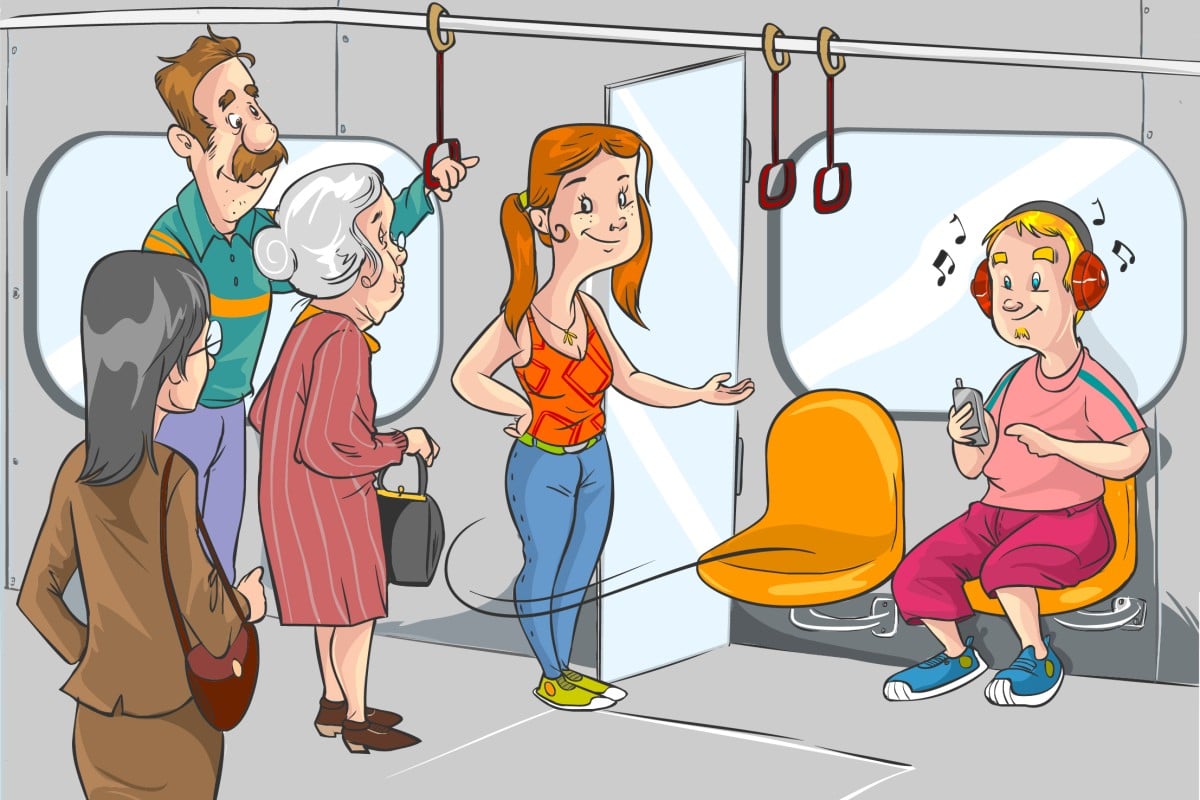
Face off: Should schools hold workshops on common courtesy?
Each week, our two teenagers will debate a hot topic.This week ...

Henry Lui, 15, Sha Tin College
In this day and age, interpersonal skills are just as important as literacy; being a polite and well-behaved person is crucial in a service-based economy - especially Hong Kong. You may have a doctorate but you may still not be able to find a job if you're a bit of a twerp.
Despite being an essential, everyday skill, "common courtesy" is actually not all that common. If you've ever been on public transport, you'll know exactly what I mean.
It's not easy for a badly-behaved person to change their ways. Just like any other habit, bad manners are acquired after a long period of "training".
If you think humans can learn common courtesy simply by observing others, you're wrong.
Parents must teach their children about right and wrong and how to behave properly. But if the parents are not very well educated, or don't care about their child's development, these kids will face big problems as they grow up. We simply can't rely on parents to teach their children good manners; most people aren't well-behaved anyway.
Workshops may only have a limited effect on students, but it's still better than doing nothing. It takes time to cultivate good habits and it's best to start early. Common courtesy is valued more highly than ever these days - especially at a time when there has been a serious decline in people's moral values.
If Hong Kong is to remain as one of the world's leading financial centres, we must ensure that our next generation of business and political leaders, as well as ordinary citizens, show immense goodwill towards foreigners and locals, and treat them with the greatest respect.
Cedric Li, 15, Sha Tin College
There is no doubt that common courtesy is important in everyday life. After all, politeness and good manners help maintain a harmonious society. However, is this such a big problem that it has to be addressed in school? I don't think so.
Firstly, I believe social etiquette can be easily learned elsewhere; there is no need for schools to waste resources organising workshops to teach common courtesy. For instance, parents should know how to "correct" a son who is disrespectful towards them. Or if their daughter behaves badly in front of her teachers or friends, their reactions should tell her that she has done something wrong and should change her behaviour, or face the consequences. Therefore, learning good manners is a simple process.
Secondly, the resources used to produce such teaching material could be used to tackle other, more pressing, issues. For example, a large number of secondary school students took part in the recent anti-mainland tourist demonstrations. So perhaps instead of introducing common courtesy workshops, schools could organise seminars that teach open-mindedness, mutual respect, and acceptance of everyone. This would solve, in my opinion, a much more serious problem among young locals today - intolerance.
Generally, I believe students in Hong Kong have a very good understanding of common courtesy. So, if this isn't such a problem, is it worth organising such workshops?
If you're interested in debating for Face Off, email Heidi with "Face Off application" in the subject at [email protected]